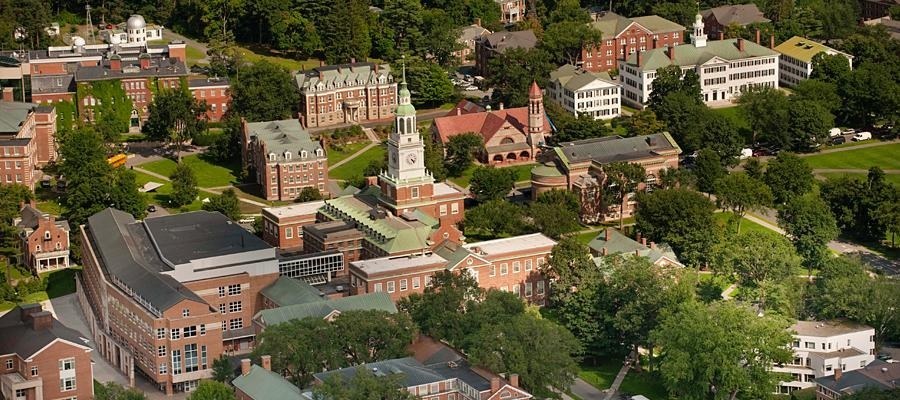The #BlackLivesMatter is expanding from protests on streets and social media to an Ivy League classroom.
Dartmouth College is offering "10 weeks/10+professors #BlackLivesMatter" this spring term, which starts Mar. 30 for students.
The course will examine race, structural inequity and violence past and present and explore their relationships with the axes of gender, sexuality, class and social status, said Abby Neely, an assistant professor of geography.

The class is a response to activists in the "Black Lives Matter" movement calling for this discussion in classrooms and a workshop on teaching Ferguson, said professors from the Ferguson Teaching Collective at Dartmouth.
A lot of students in the 'Black Lives Matter' movement have said their teachers haven't been supportive and have been looking for discussions on this inside the classroom [...] We feel this is the most potent way to answer activists' calls and make this happen quickly because of its relevance and importance.
The course seems to be exactly what Dartmouth needs to raise awareness relevant to colored people, one student told The Dartmouth, the school's official student-run newspaper.
Courses like these are extremely important, and they get us all out of our comfort zones, whether you're taking the course or not, because people will be talking about it,

The class, which will likely be taught in multiple sections by over 20 professors, will count toward the 35 credits students need to graduate from Dartmouth College, said Richard Wright, professor of geography.
And because of its inter-disciplinary nature, students might have to "grapple with math undergirding the subprime mortgage crisis one week, the sociology of mass incarceration the next and then switch gears to consider violence and blackness by reading Fanon, Barthes and CLR James the next," Wright said.
But though many see the creation of the “#BlackLivesMatter” course as relevant and revolutionary, others are concerned about Dartmouth’s own dark past.

Eleazar Wheelock founded Dartmouth in 1769 with the "white-savior" sounding intention of educating Native Americans. The college only saw a mere 19 Native American students graduate in its first 200 years.
Some students have expressed concerned that a faculty predominantly not black will be leading a discussion that should be led by black people within the movement.
Non-black Professors told me they are aware of this concern and their privilege and will keep it in mind in the politics and boundaries of speaking in this kind of situation.
I acknowledge that I interact from a position of privilege and power as a white professor [...] To those students who argue professors of color are the most knowledgeable about experiencing oppression: you are right. But, that doesn't mean the conversation should stay between black students and black professors.
Walton hopes that the class will facilitate and engage in conversations from multiple perspectives to acknowledge and understand the systemic nature of injustice, she said.
"In order to move forward, to make change, the conversation cannot be intra-racial, but must be inter-racial," she said. "There are always a few white students in my classes, and they usually express discomfort discussing racial oppression, marginalization, systemic inequities...but, in the end I know they are also the students who walk away having gained the most from our discussions."
The professors also expressed hope that students would take the conversations in class out of the classroom into their own lives and other spaces on campus.
(The "Black Lives Matter" movement and hashtag was started by three women, two of whom are queer—Alicia Garza, Patrisse Cullors and Opal Tometi. It has since expanded into an intersectionally inclusive global movement.)

